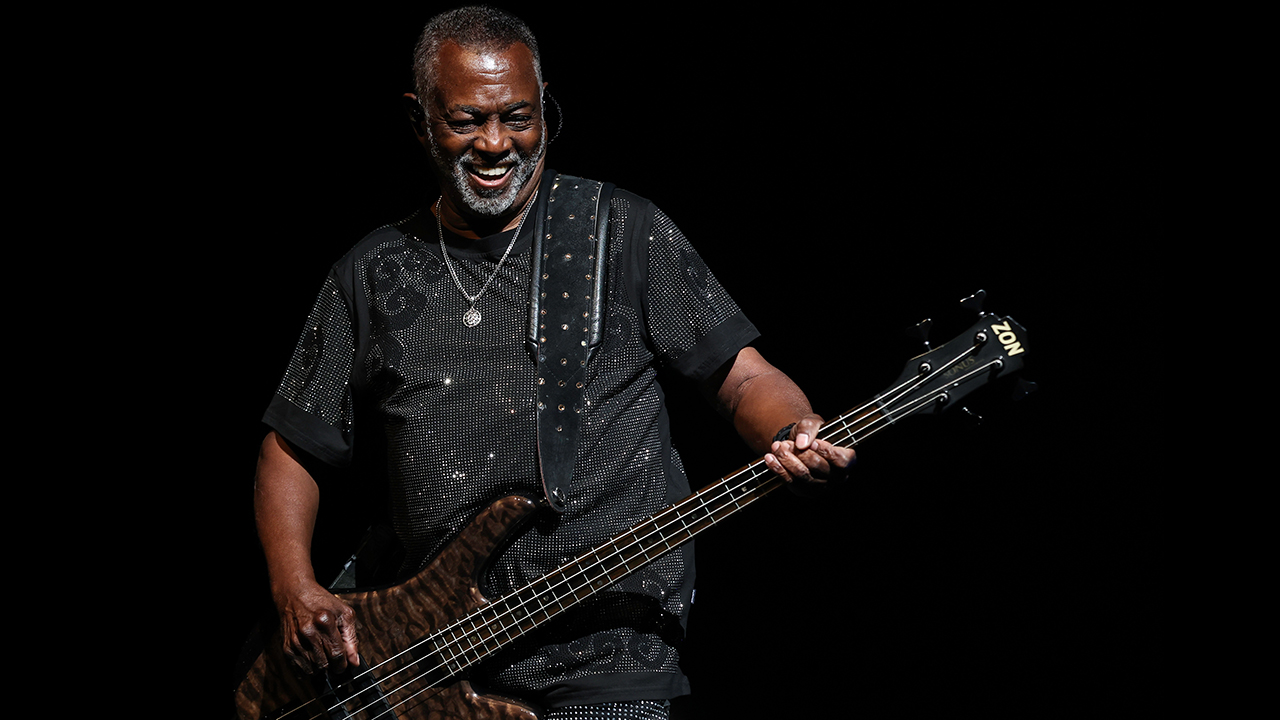John Frusciante shares 7 tips that will make you a better guitarist
The returning guitar hero offers his wisdom from a career of era-defining playing with the Red Hot Chili Peppers – and reveals how to become the player you always wanted to be...
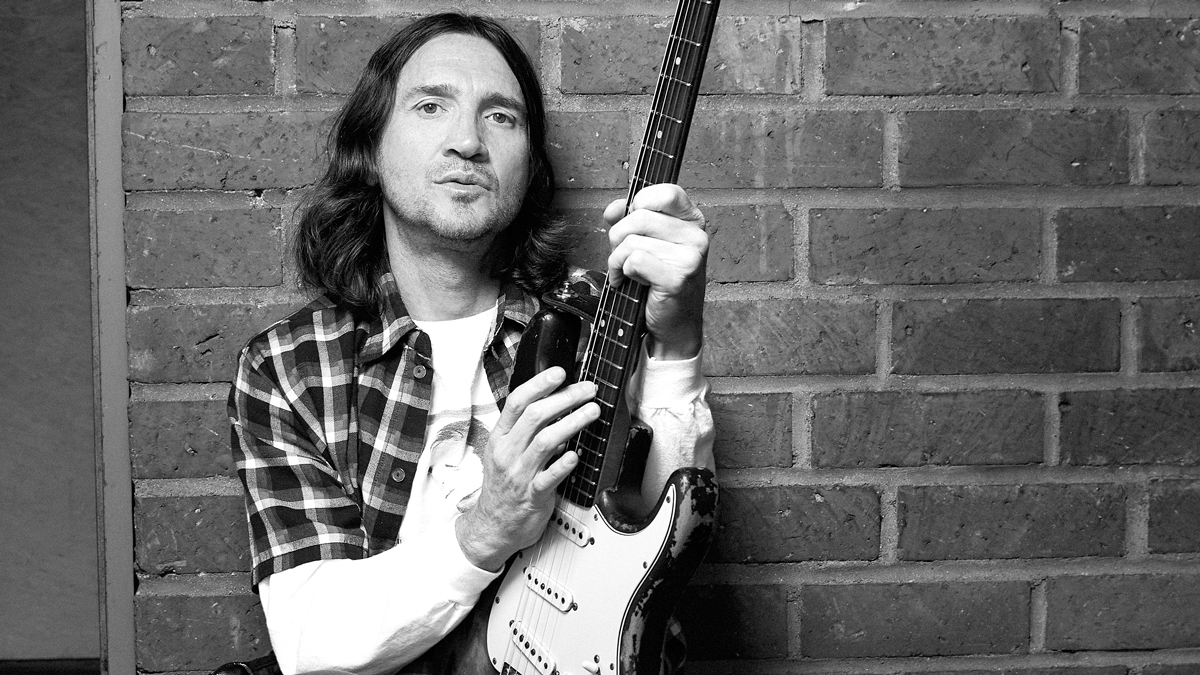
Best of 2022: When Total Guitar spent the best part of two hours talking to returning Red Hot Chili Peppers guitar hero John Frusciante, we not only got his story on the making of explosive new album, Unlimited Love, but also delved into his evolution as a guitar player, and what you can learn from his journey.
Frusciante is a once-in-a-generation guitarist. From joining the LA funk-rock institution at the age of 18, to overcoming his preconceptions, finding his voice and ultimately writing some of the most iconic guitar parts of the past four decades, he has a wealth of wisdom to share.
But as he reveals here, it’s not just about the guitar player. The ability to listen, feel and complement the band are crucial steps in every guitarist’s quest to become the player they want to be.
Read on as John shares seven tips that will change the way you approach the guitar, not just from a technical level, but a philosophical one, as well…
1. Never stop pushing yourself
“The first couple of years I was in the Chili Peppers, I wasn’t really on the right path. I thought I could be like Flea where, in those days, he used to practise a half-hour a day, or some days not play at all.
“And every time he picked up his bass, an awesome thing came out of it. And so when I joined the band, I thought, ‘I could be like that!’ And it turns out, I can’t be like that – if I did that, nothing original would come out of me, I wouldn’t feel good about what I’ve done, I wouldn’t have fun on stage, I wouldn’t be able to write songs and be able to match his level of creativity.
“For me to be equal to Flea, I have to work 20 times harder: I have to be playing along with other people’s music all the time, I have to be writing way more ideas than I actually show to anybody. I have to be striving to understand things that I don’t understand, and that I may never understand.”
All the latest guitar news, interviews, lessons, reviews, deals and more, direct to your inbox!
2. Stay true to who you are
“When I was 18 and the early part of being 19, I was trying to be impressive, because I could play fancy things, or because I could be intense.
“That never left, but I figured out pretty quickly that I couldn’t rely on that ability to be intense and I couldn’t rely on my technique – music doesn’t really mean anything to people unless you’re really giving something of yourself in it and putting yourself out there in a vulnerable way. Not trying to show people, ‘Hey, watch me, I’m good,’ but to give people a piece of your heart.
“It was a switch that took place right after we got off tour for [1989 album] Mother’s Milk. I just decided, if I keep going the way that I’m going, I’m never going to be happy with anything that I do, so I have to give up my ideas of what good is and I just have to try to be myself and figure out what that is – and stop trying to be what I think people want me to be, or what I think the Chilis are supposed to be. I have to try to just figure out: ‘Who am I?’”
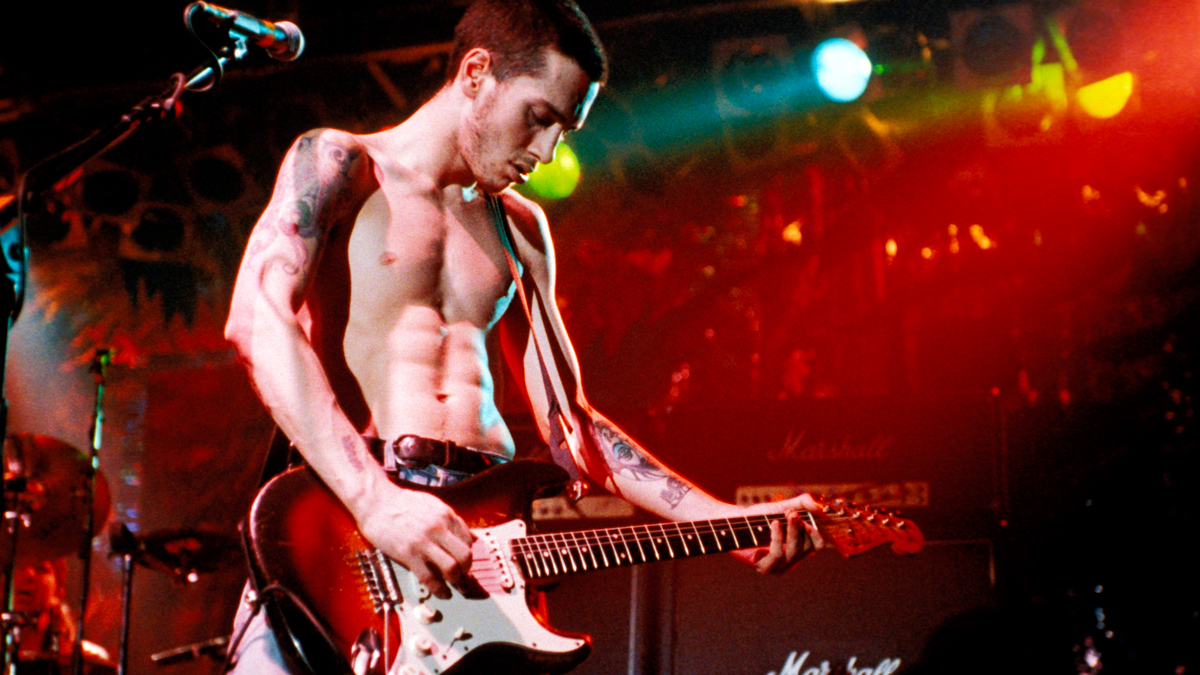
3. Don’t set out to impress
“Generally, when I put away all those ideas of trying to be ‘good’, or trying to impress people, a thing that I can’t explain from my soul started to come out of my playing – and people started liking my playing a lot more at that point; I started to mean something to people.
“It was one of those weird conundrums, because I had given up caring at that point: I figured I’m just gonna be myself, come what may; I’m going to stop trying to be impressive. And that was actually what caused people to start to really be into what I was doing.”
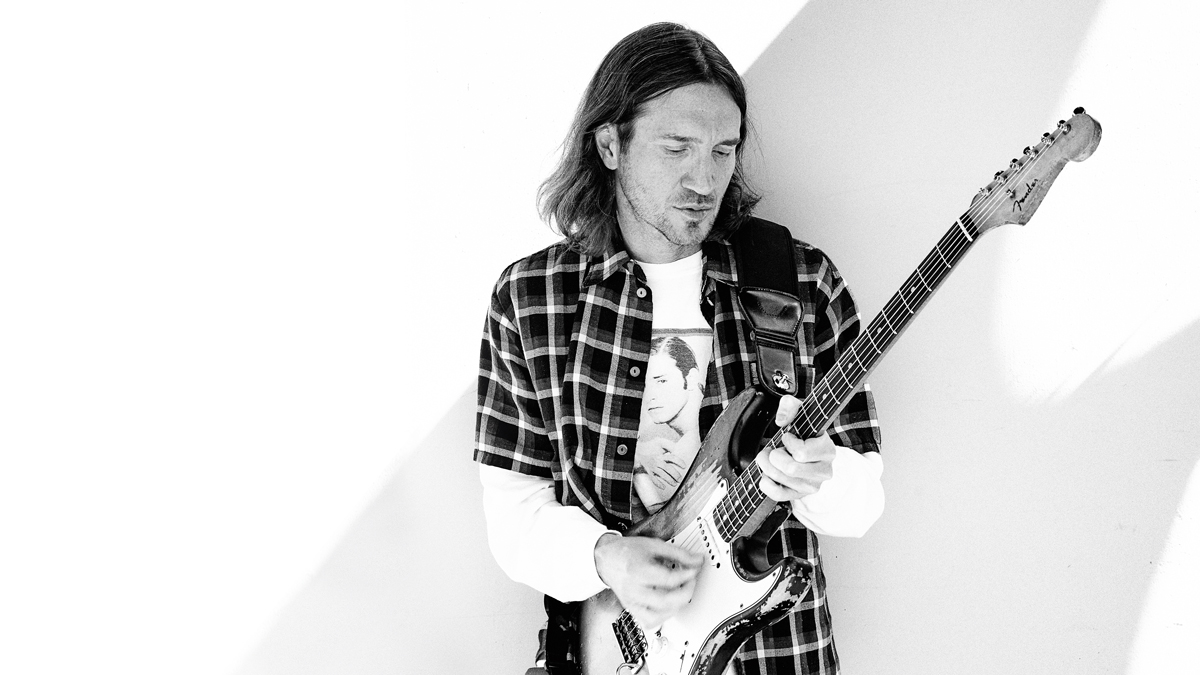
4. Keep it simple and your bandmates will shine
“When I started to put all those teenage ideas out of my head, and I started really simplifying and trying to play more from my heart rather than trying to dazzle people with my fingers, Flea started sounding a lot better.
“I realised that by going into rehearsal, and instead of playing, just do feedback, or hold one note for a long time. I noticed that this made Flea sound awesome! I saw how it affected the chemistry in the band, as well; it made everybody else sound better, because I was giving them this canvas that they could paint on, as opposed to trying to step in front of other people to do my painting.
“I was like, ‘I’m gonna let them do the painting and I’m just gonna give them an atmosphere to do that in,’ and I saw that it had a really good effect on everybody.”
5. A guitar player’s true ability lies in how they interact with the band
“Too often people assume that a guitar player’s worth comes from their ability to draw attention to themselves. And there are a lot of great guitar players who are great at drawing attention to themselves.
“But to me the essential thing that those people have – that other people who don’t draw attention to themselves like Bernard Sumner in Joy Division, or Syd Barrett, or Johnny Thunders or Matthew Ashman from Bow Wow Wow or John McGeoch in Siouxsie and the Banshees – to me, what they have in common with Eddie Van Halen and Randy Rhoads and Jimi Hendrix is that they knew how to be a member of a band and make everybody else sound better. They knew how to be team players.
“Yeah, Eddie Van Halen happened to have a flashy style, but he was a great rhythm guitar player, and he made those drums sound great. He made that bass sound great. He made the singer sound great. To me, it really doesn’t matter how much technique you have; the real skill in being a guitar player is in making the rest of the band sound good.
A rock band is not four separate people in their own bubble; a rock band is three or four or five people who all create one sound together
“And so for some people, it’s just who you are as a soul. For some people, that means doing a lot of flashy stuff as well as doing the guitar parts for the song. For some people, that means not soloing at all. For some people, it means doing a very simple kind of soloing.
“I feel like, for me, that’s where I measure a guitar player’s skill: in how they assist the rest of the band in creating one sound together. A rock band is not four separate people in their own bubble; a rock band is three or four or five people who all create one sound together.
“And each person’s skill can be judged by what that sound is – not by what they’re doing individually or what it looks like, or whether or not it’s physically hard to do for up-and-coming musicians. I realised that when I was about 19, 20, and I’ve always felt that way.”
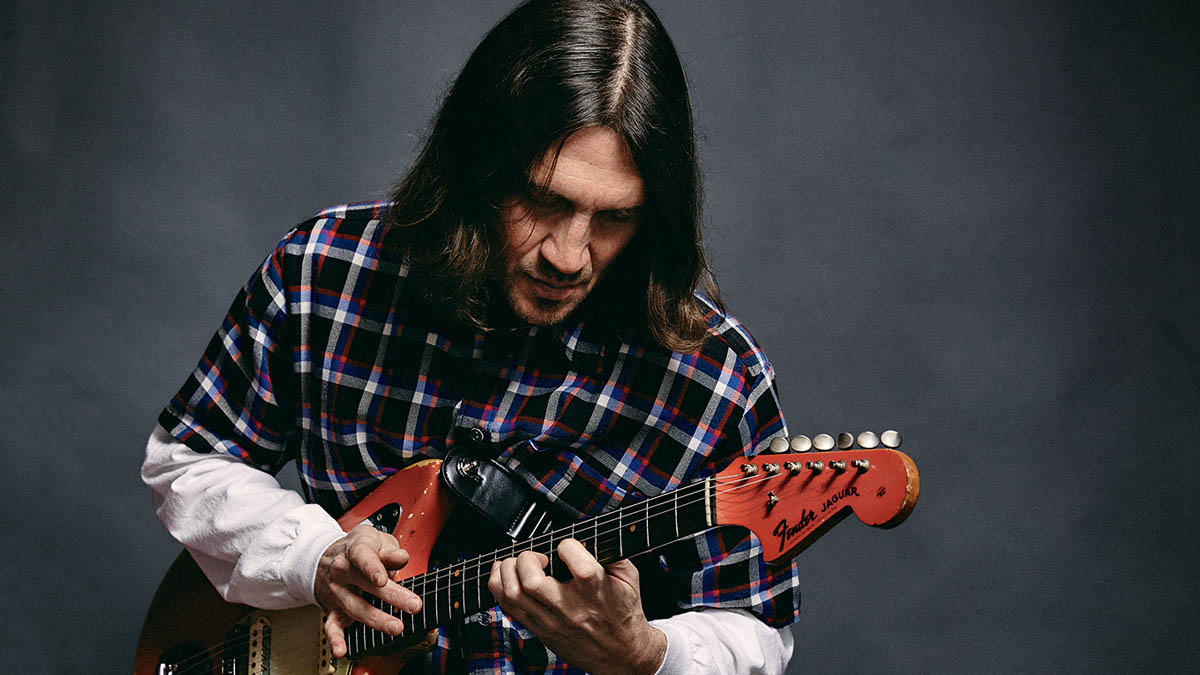
6. Master your dynamics
“Accents and non-accents are, I think, the most important thing in terms of sounding expressive as a guitar player. That’s the thing you have no control of when you start playing, and you wonder, ‘What is it that makes these people on these records sound so much better than me, and I’m playing the same thing?’
“It’s your accents and your non-accents, and then everything in between. My practice routine has a lot to do with playing scales in different ways that switch between accents and non-accents. I’m always extremely conscious of it – I’m really focused on that whole idea of the volume that comes from hitting notes harder and faster, or softer and slower.”
7. Switch off your mind and feel the chemistry
“When you shut your brain off [while jamming], that’s when you notice funny things happening – like, Flea and I will play the same exact riff at the same time without either of us having played it before.
“It’s definitely best to turn your brain off, and just listen and feel whatever feelings everybody else is putting through you. It’s definitely important to listen to everybody else, but you should also be having fun listening to what comes out of your instrument. And it’s another thing I like about feedback: that you don’t know what’s gonna happen next. So, you listen to what’s coming out of the speaker, and then you play to that.
“Sometimes with guitar players, especially when they’re very concerned with whether or not what’s going to come out of them is good or not, they tend to place themselves before the notes that come out. And I know that’s a natural thing to do, the way our minds are locked into the present moment.
“But if you can let go and listen to what’s happened as it’s just happened and respond to that, no matter how much you have to slow yourself down to do that, I feel like that’s the more productive angle to listen from, and it’s definitely the more fun angle to listen from.
“Because if you’re worried about what’s gonna happen before it happens, you might miss the boat altogether, but if you listen to what’s just happened, and you pay attention to how that relates to the other things that are happening, it becomes a regenerative process.
Play a couple of notes and wait for five seconds before you play any more notes
“In the same way that feedback is something that, while it’s coming through you, it comes back at you, I feel like it can be that way with any kind of playing: play a couple of notes and wait for five seconds before you play any more notes.
“Listen to the feeling of how that affected the other instruments, and then just play whatever the fuck comes out of you without thinking about it when the right time comes.
“That’s one of the main ways that my whole mental state switched at that point when I felt like I found my own style: before that, I was stuck in that moment right before you play everything you’re gonna play. And after that, I found myself more located in that moment after you’ve played something.”

Mike has been Editor-in-Chief of GuitarWorld.com since 2019, and an offset fiend and recovering pedal addict for far longer. He has a master's degree in journalism from Cardiff University, and 15 years' experience writing and editing for guitar publications including MusicRadar, Total Guitar and Guitarist, as well as 20 years of recording and live experience in original and function bands. During his career, he has interviewed the likes of John Frusciante, Chris Cornell, Tom Morello, Matt Bellamy, Kirk Hammett, Jerry Cantrell, Joe Satriani, Tom DeLonge, Radiohead's Ed O'Brien, Polyphia, Tosin Abasi, Yvette Young and many more. His writing also appears in the The Cambridge Companion to the Electric Guitar. In his free time, you'll find him making progressive instrumental rock as Maebe.
